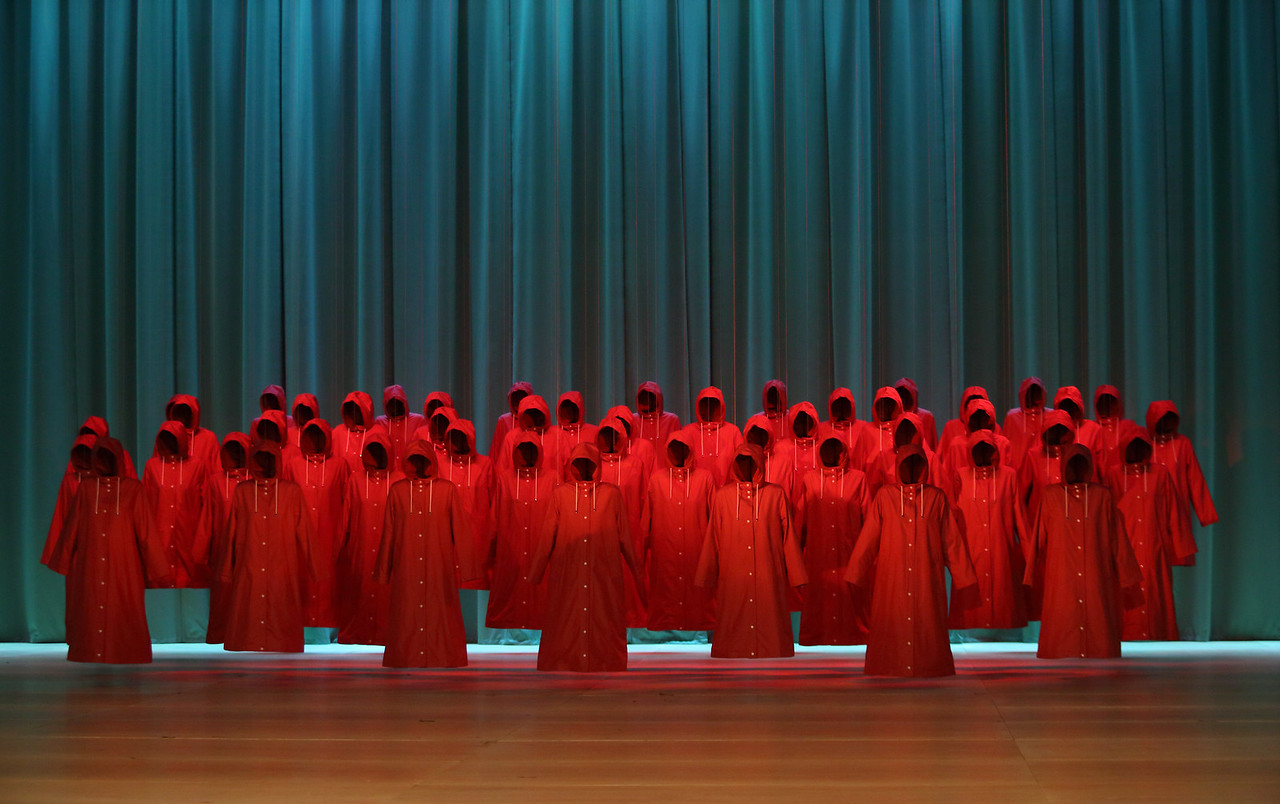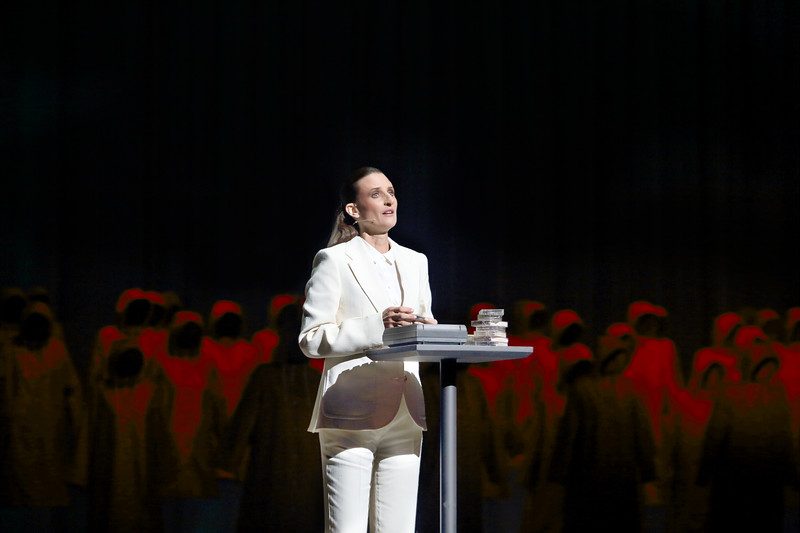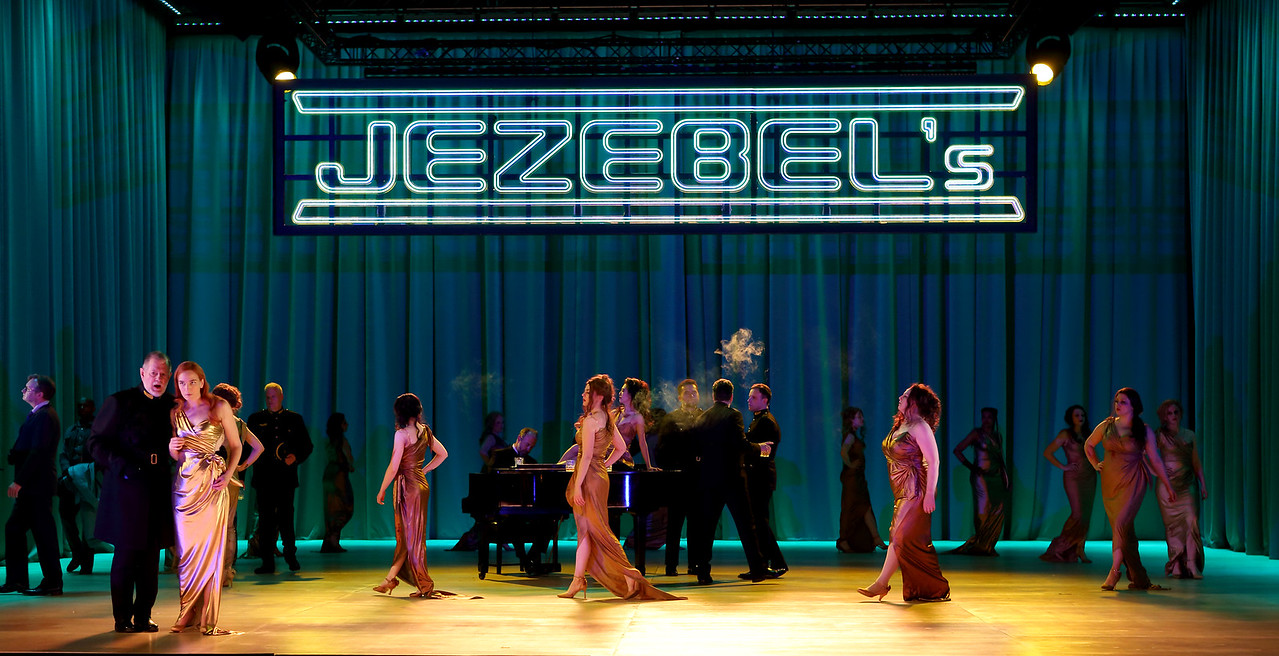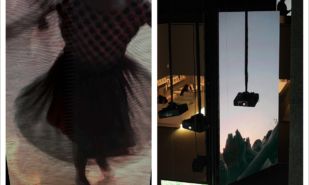On February 1-15 the English National Opera will stage the revival of the Danish composer Poul Ruders’ acclaimed opera The Handmaid’s Tale that received its premiere in Copenhagen in 2000. There will be only 5 performances this year (with a signed performance on February 8), and, having been called ‘one of the most powerful operas of the century’ (Financial Times), it is something indeed not to be missed out. If you are planning to attend the opening night, please be aware that during the first performance on February 1 there would be a planned strike by some of the musicians and chorus members of the ENO who intend to walk out as a sign of protest to planned cuts in the opera house’s workforce. The production was directed by the ENO Artistic director, a specialist in contemporary opera Annilese Miskimmon, and Annemarie Woods having worked on set and costumes for this production. Interestingly, the opera, due to its highly sensitive subject matter, needed a movement and intimacy coordinator, and Imogen Knight was invited for this role.
ENO delves into the dark recesses of an imagined totalitarian system
| Author | |
|---|---|
| Category | Columnists, Culture, Lifestyle, Town |
| Date | January 25 2024 |
| Reading Time | 3 min. |
ENO delves into the dark recesses of an imagined totalitarian system

The libretto is based on the acclaimed novel (1985) by the Canadian writer Margaret Atwood is in English and was written by Paul Bentley. Atwood’s speculative fiction (that is the genre attributed to the book by the author herself) is a feminist dystopian novel that openly criticises the social trends of the North American society of the 1980s, including puritanism and the pressure on women to quit their jobs and return to family and bearing children. In the novel we see the theocracy Gilead taking over the United States of America and turning it into an hierarchical and very oppressive society where women are stripped almost of all rights (including those to learn to read and write), and are divided into casts, with wives being the highest, and handmaids being the lowest of them, used as childbearers in the society where unnamed ecological issues made many women infertile. Many women had normal biographies, husbands and children before the revolution. In the novel we follow the first-person narrative of Offred, one of the handmaids who was married to a divorced man (this now being a crime), and later discover that we know her story because her audio recording is later presented at the conference researching the Gilead times.

Paul Bentley skilfully restructures the novel and emphasises the ritualistic elements of the totalitarian system that was partly modelled on the Iranian religious regime and today could be compared to that of the Taliban. The opera starts with a videoconference on the Republic of Gilead and then begins with telling the tale of Offred, cutting on the first-person narrative and presenting us an intense intrigue where Offred is both the victim and the actor who tries to escape the regime. After the prologue at the conference the opera delves into the Red centre prelude where we get to know the rules of the indoctrination centre where handmaids are prepared for their function. Then in Act One and Act Two the plot develops, with the first having Birth with its focus (the handmade Janine gives birth to a child and handmaids attend a ceremony of greeting her) and the second concentrating on death, with a public execution of a figure belonging to underground resistance movement happening in front of us. Bentley skilfully combines the outward strict rules and the growing seeds of resistance from Offred and others, as well as unruly behaviour beyond the curtains that the high-ranked officials like the Commander self-indulge in.

Represented by Wise Music Classical in Britain, the Danish composer Ruders’s score is influenced by minimalism, mediaeval chanting and gospel music. The plot of the libretto gives the composer the opportunity to fill the score with tension and unease, reflecting the visceral brutality of the regime. The haunting atmosphere in this peace is built from the repetitive chanting of the Handmaids, and the discomfort is mounting both through the opera’s events that include ritual rape, illegal sexual intercourses, murders and continuous oppression of women. Five opera performances are conducted by the acclaimed Joana Carneiro, who is highly sought after for her specialism in contemporary works. The performance as Offred is by the American mezzo-soprano Kate Lindsey. Making a role debut is British soprano Rachel Nicholls who is performing the role of Aunt Lydia who is responsible for the handmaids’ indoctrination. American bass James Creswell is performing the role of The Commander, the ‘owner’ of Offred. Serena Joy, the wife of the Commander, is performed by the American contralto Avery Amereau. Nadine Benjamin makes her role debut as Moira (another handmaid who revolts and ends in a brothel), with Janine/Ofwarren is sung by the captivating and versatile Welsh soprano Rhian Lois. With striking visual scenes and appearances by ENO chorus, this opera promises to be something not to be forgotten, and proudly joins the list of key stage adaptations of Margaret Atwood’s novel that has already become a modern classic.




